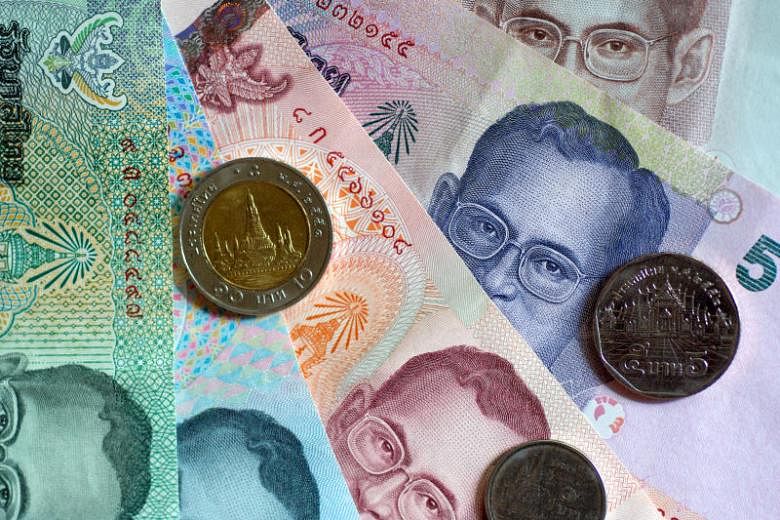BANGKOK (REUTERS) - Thailand's central bank said it was monitoring the baht closely after it strengthened through the 30 baht to the United States dollar mark before the New Year holidays, but the currency fell on Thursday (Jan 2) and the bank said liquidity was returning to normal.
"The baht will remain volatile as the market adjusts,"Assistant Central Bank Governor Vachira Arromdee said in a statement. "The central bank will closely monitor the baht."
The baht was at 30.10 to the US dollar at 5.28am GMT, versus a more than six-year top of 29.91 reached on Monday. The market was closed on Tuesday and Wednesday for New Year holidays.
It gained 8.8 per cent in 2019, Asia's best performing currency, driven by the country's large current account surplus.
The central bank has said the baht's year-end fluctuations were not in line with fundamentals and were due to a flurry of year-end transactions amid thin liquidity.
A bank dealer said liquidity remained thin on Thursday, but if it returned to normal, the baht might break the 30 baht mark again, given upbeat sentiment on Asian currencies.
Roong Sanguanruang, head of global market research at Bank of Ayudhya, said the baht would remain strong and might end the year at 29.85 per US dollar.
Minutes of the central bank's Dec 18 meeting, released on Thursday, highlighted the monetary policy committee's (MPC) concerns about the impact of the strong baht on exports and the economy, which was expected to grow below potential.
The MPC sees a need to monitor the baht closely and consider additional measures if necessary, the minutes said.
At the meeting, the MPC left the key interest rate unchanged at a record low of 1.25 per cent after two cuts in 2019. But it slashed its growth forecasts for 2019 and 2020 to 2.5 per cent and 2.8 per cent, respectively.
It will next review policy on Feb 5.
South-east Asia's second-largest economy will continue to lag most peers this year, weighed by still weak exports and the strong baht, analysts say.

